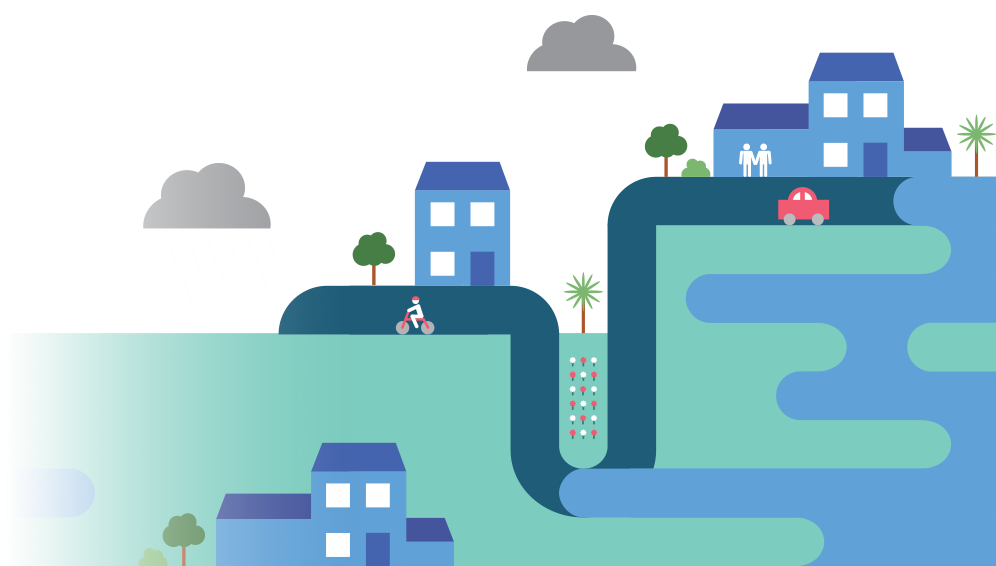Let's help get you ready
As our climate changes, Ōtautahi Christchurch and Te Pātaka o Rākaihautū Banks Peninsula will experience more heavy rainfall and flooding.
This can feel unsettling, and it’s often hard to know what to do or where to start.
Our practical tips will help you prepare your home and property, so they’re ready for the changing conditions.
Watch the short video to get started, then scroll down for everything you need to know. Taking the right steps now can make a big difference in the future.
Easy, low-cost ways
We've put together a range of practical, low-to-no-cost solutions to help you ready your home for the impacts of heavy rain, flooding and sea level rise.
Start by exploring the interactive image below for quick advice. Then scroll down for more detailed guidance to help you take the next steps.
Remove leaves and other debris from gutters and downpipes so rainwater can flow freely and doesn’t back up or overflow into your home. Check them often, especially before heavy rain, strong wind, storms, or the start of winter, when blockages are more likely.
Gutter guards stop leaves from blocking your gutters. They’re low-cost, and you can install them yourself. They’re available in plastic or metal, depending on what suits your roof and budget. Ask your local hardware store for advice on the best type for your home.
Keep appliances and electronics off the ground. Mount dryers and other gear on walls if you can. When renovating, place power points, internet routers, and outdoor units, like heat pumps, above expected flood levels to help avoid damage.
Healthy gardens soak up rain, helping reduce runoff and minor flooding. Regular care also stops leaves and debris from blocking drains and damaging your home.
Make sure water can flow from your property to the street drains. If you see leaves, dirt, or rubbish in street gutters or drains, clear them if it’s safe – and bin the waste.
Investment solutions
We've put together a range of investment solutions to help you ready your home for the impacts of heavy rain, flooding and sea level rise. Some improvements take a little more planning and investment but can make a big difference over time.
Start by exploring the interactive image below for quick advice. Then scroll down for more detailed guidance to help you take the next steps.
Rainwater tanks or barrels collect water from your roof, stopping it from pooling around your home. Use the stored water for gardens, outdoor cleaning, and during dry weather and droughts. Rainwater tanks also help ease pressure on stormwater drains.
When installing a heat pump, ask your installer to mount it high. Put low-level power points on separate circuits so others still work if one or more floods. Run wires from the ceiling down, where possible, to reduce the risk of water damage.
Flood barriers, like door guards and floodgates, help stop water from getting into your home. Many hardware stores and online shops sell them – ask them to help you find the right one.
When landscaping, shape the ground so water flows away from your home, and avoid driveways that slope toward it. If you can’t redirect water, make sure there’s good drainage to move it to areas where it can soak in.
Choose surfaces like gravel or pavers which let water soak through, instead of concrete. Letting the water go into the ground reduces runoff, easing pressure on drains and lowering the chance of water pooling around your home.
Be ready
As our climate continues to change, we can expect to face more frequent extreme weather events throughout Ōtautahi Christchurch and Te Pātaka o Rākaihautū Banks Peninsula.
Readying your home now for extreme weather events and climate change can make a big difference later. Find out more ways to ready your home for different types of weather events.
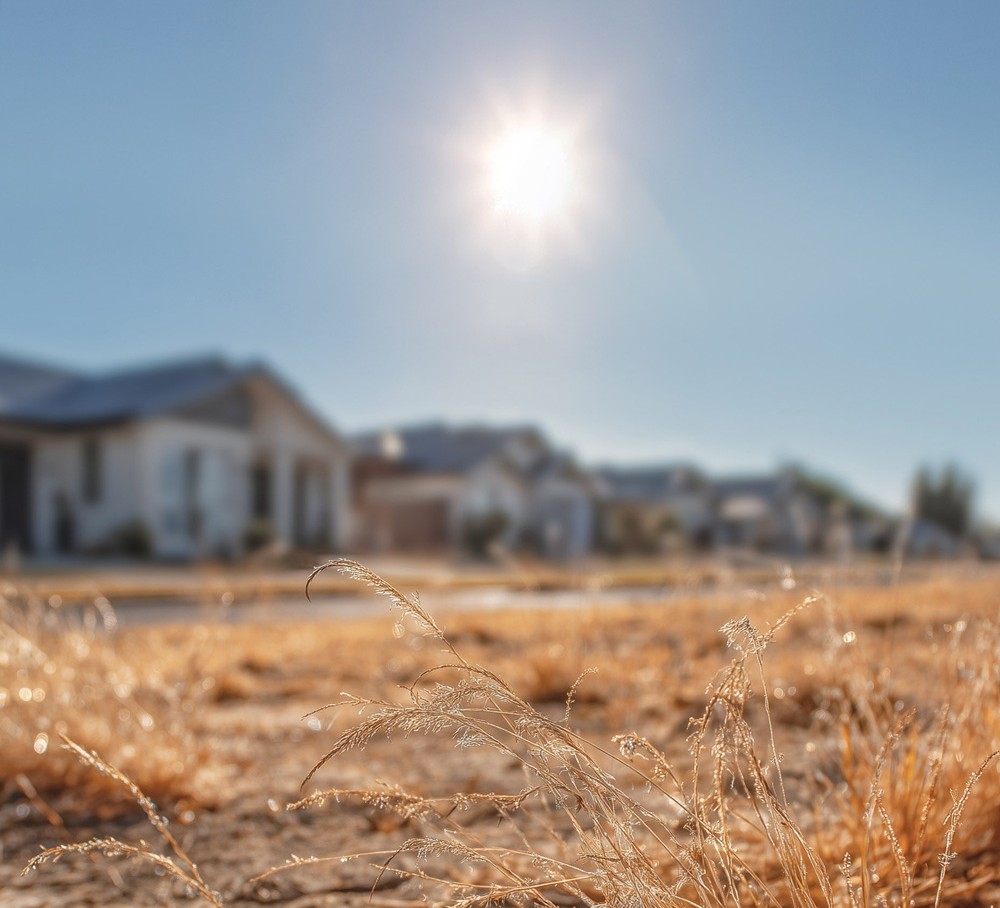
High heat
Increased hotter days are ahead; now’s the time to ready your home for rising temperatures.
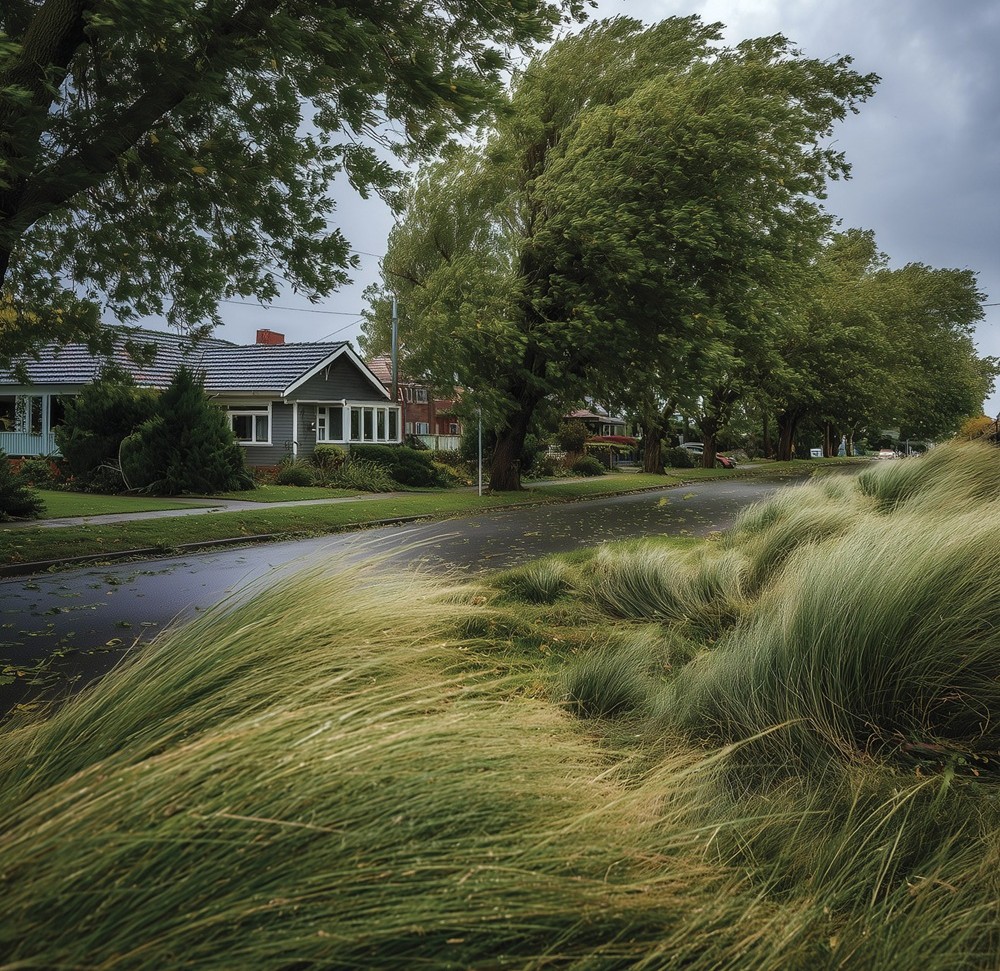
Strong wind
Stronger winds are becoming more frequent. Ready your home now before the next event happens.
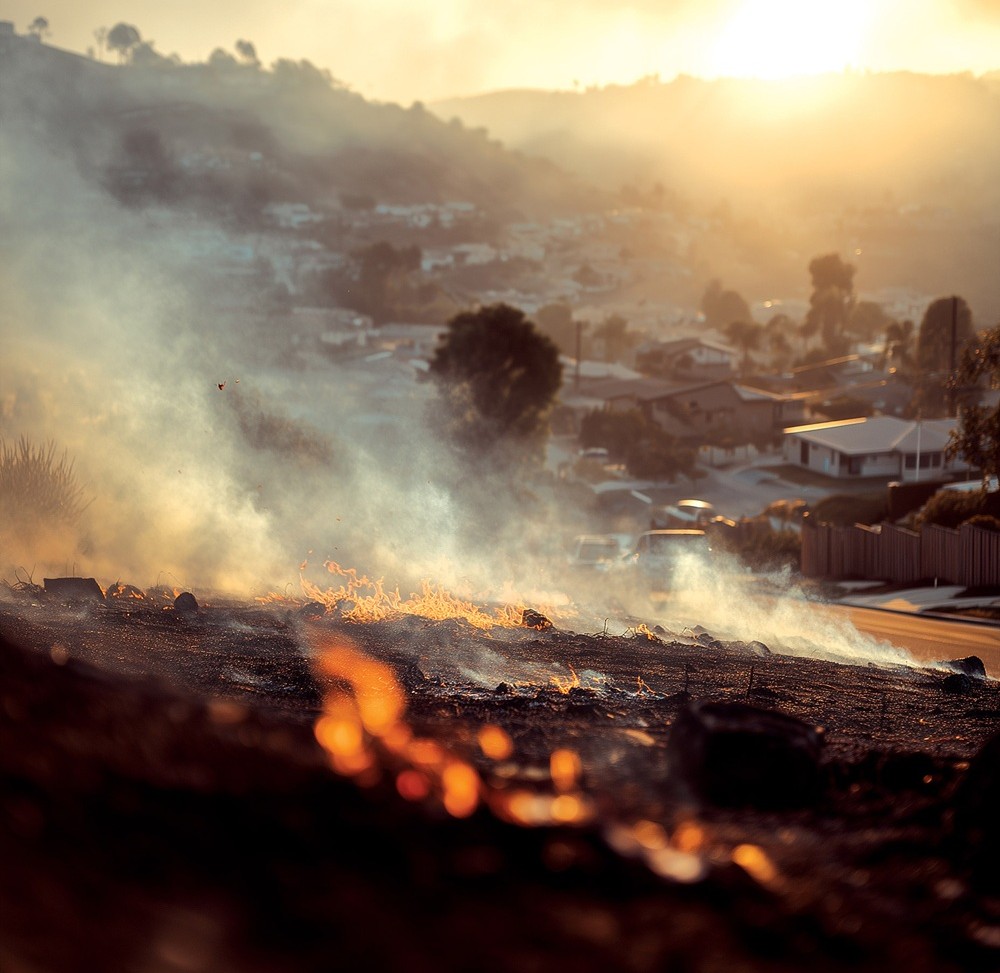
Wildfire
Ready your home now for wildfires. Taking steps today will help you be more prepared for future events.
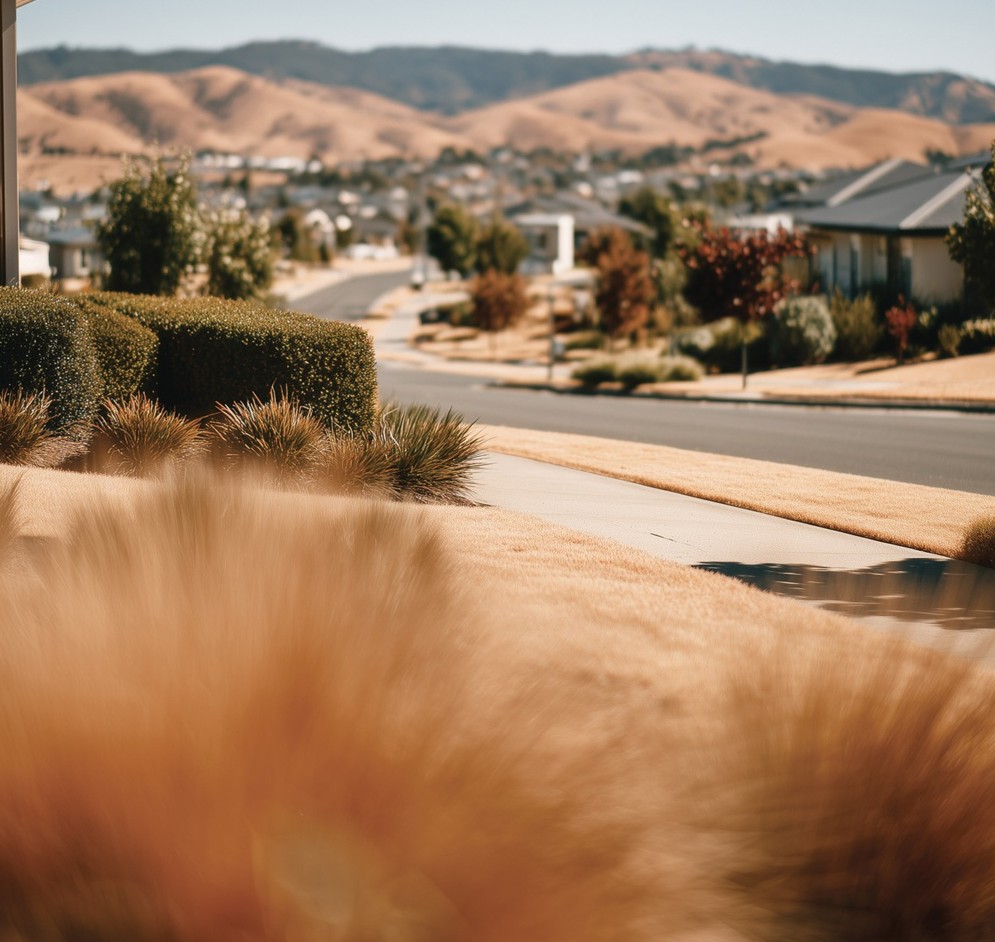
Drought
As longer periods of dry weather become more common, readying your home now will help you be prepared.

